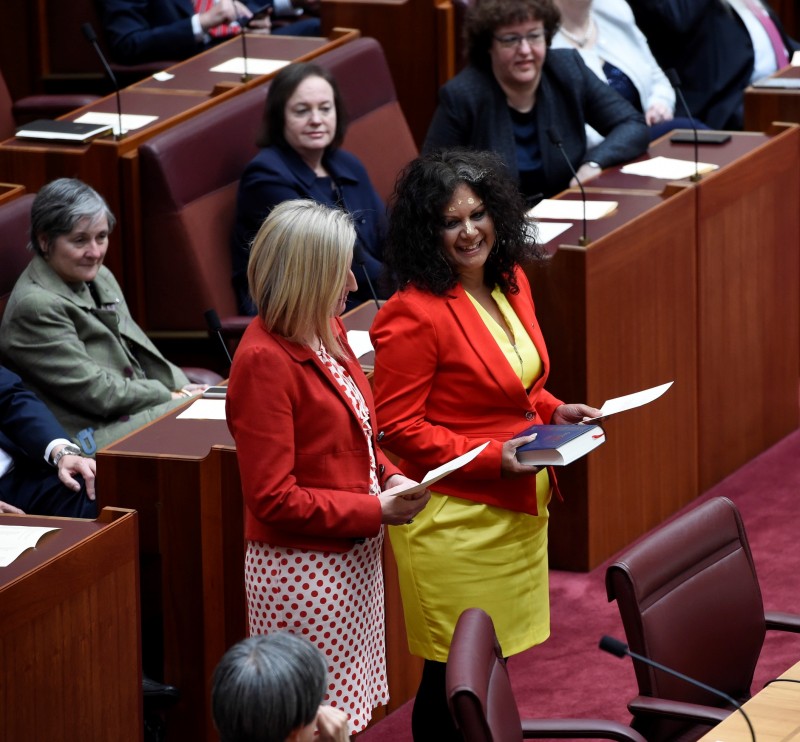How are casual vacancies in the senate decided now?
Swearing in of senators.

DPS Auspic
Description
Two senators being sworn in. The senator on the right holds a bible.
Permission should be sought from DPS AUSPIC for third-party or commercial uses of this image. To contact DPS AUSPIC email: auspic@aph.gov.au or phone: 02 6277 3342.
Sometimes a Senate seat becomes vacant – free – because a senator has resigned or died. Section 15 of the Australian Constitution states that when a casual vacancy occurs in the Senate, a new senator is chosen by the parliament of the state which that senator represented.
In 1977 the Constitution was changed by referendum to require that the vacant place be filled by a member of the same political party as the vacating senator.
But what happens if the vacating senator is an independent? If the senator was elected as a member of a political party but left that party to become an independent (or join a different party), the casual vacancy will be filled by a nominee of the original party. If a vacating senator was elected as a member of a party that no longer exists, the state parliament or legislative assembly with responsibility to fill the vacancy would need to decide who would be an appropriate replacement.
For example, in December 1977, Senator Steele Hall resigned. He had been elected as a member of the Liberal Movement, which no longer existed. With no Liberal Movement member to fill the casual vacancy, the South Australian Parliament looked for someone with a connection to the former party. Janine Haines had been a member of the Liberal Movement and stood for election to the Senate for the party. Even though she was now a member of the Australian Democrats, the South Australian Parliament choose her because of her, and her new party’s, connection to the Liberal Movement.
If a vacating senator was elected as an independent, the state parliament or legislative assembly would need to decide who to appoint.